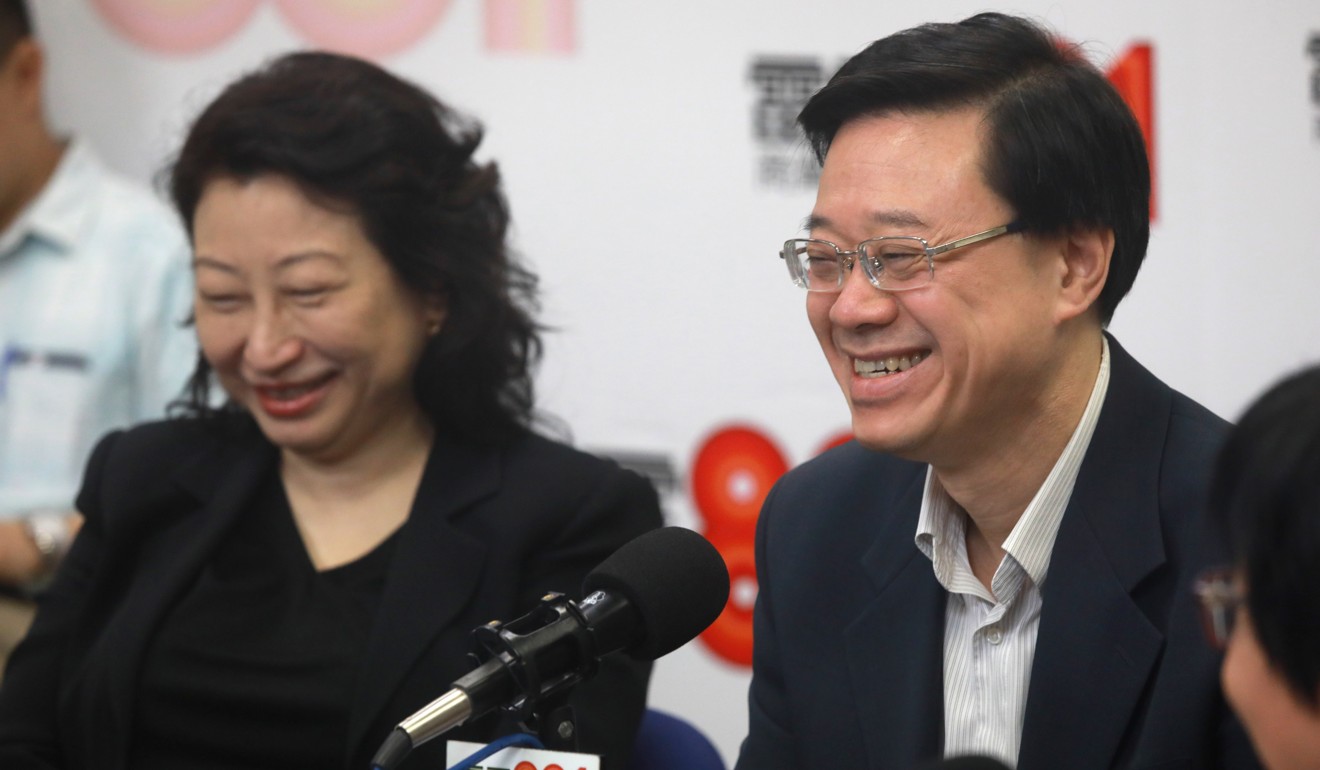
Hong Kong extradition bill: security chief John Lee says he expects Beijing to keep its promises on human rights safeguards
- Lee rejects calls to write protections into law, saying the mainland already follows international standards in this area
- More than 250 amendments now submitted to controversial bill on transfer of fugitives
Hong Kong’s security chief said on Sunday he was confident Beijing would keep its word and safeguard the human rights of any fugitives handed over to mainland China, even though protections would not be written into the government’s contentious extradition bill.
John Lee Ka-chiu dismissed calls from critics to embed those safeguards in the proposed legislation, which if passed would allow the transfer of criminal suspects to jurisdictions the city does not have an extradition treaty with, including the mainland.
While critics demanded those safeguards form part of the legislation, Lee insisted on Sunday the current proposal would offer greater flexibility, adding he was confident mainland authorities would stay true to their promises, even without protection clauses in the bill.

“China has signed extradition deals with 55 countries and it has no problem discharging its international responsibilities,” he told a radio programme, adding that such cross-border renditions, if they happened, would be reported by both local and mainland media.
Lee said relevant safeguards were already in place on the mainland.
He noted, for example, that suspects over the border should have legal representation and that courts are bound by requirements to keep defendants’ families informed of proceedings.
“These clauses [in mainland laws] could fully meet the requirements [on human rights safeguards],” he said.
No hidden agenda behind extradition bill, city’s No 2 insists
While pan-democrats, the international community and foreign business representatives have voiced strong opposition to the proposed amendments, Lee sought to reassure the general public the bill would only target people accused of the most heinous offences, punishable by jail terms of at least seven years.
Asked if the government would offer further concessions, Secretary for Justice Teresa Cheng Yeuk-wah told the same radio show it would first focus on the amendments submitted by legislators.
The pan-democrats have tabled at least 258 amendments seeking to add safeguards to the bill.
Civic Party leader Alvin Yeung Ngok-kiu said Lee was either "too naive" or deliberately misleading the public of the reality on the mainland.
"The Chinese constitution, namely Article 35, has guaranteed freedom of speech," he said. "But it can't be found in reality and has remained a scarcity in China."
He also accused Lee of not telling the full story when the security chief highlighted how Beijing had struck an extradition agreement with 55 countries.
Yeung said Canadian authorities had not entered formal discussions for a deal with Beijing, despite premier Li Keqiang indicating his interest in doing so years ago, because of concerns with the human rights situation on the mainland.
The latest tweaks to the bill appeared to have won over the local business community, with local chambers and the Liberal Party, one of the most outspoken critics of the bill, welcoming the changes.
But James Tien Pei-chun, honorary chairman of the Liberals, said the turnout at next Sunday’s march against the bill, organised by the Civil Human Rights Front, was still important.
“I am not trying to incite people to take to the streets ... but if citizens come out and express [concerns] over human rights safeguards, I believe Beijing would take note of it,” he said.
Hong Kong extradition bill’s latest opponent: housewives
The Supreme People’s Procuratorate would bear this in mind and fulfil its gatekeeping role when triggering rendition requests in future, he added.
Meanwhile, Financial Secretary Paul Chan Mo-po wrote on his weekly blog on Sunday that the latest tweaks to the bill showed the government’s willingness to address concerns from different sectors, and that it would continue to explain why the legislation is necessary.

